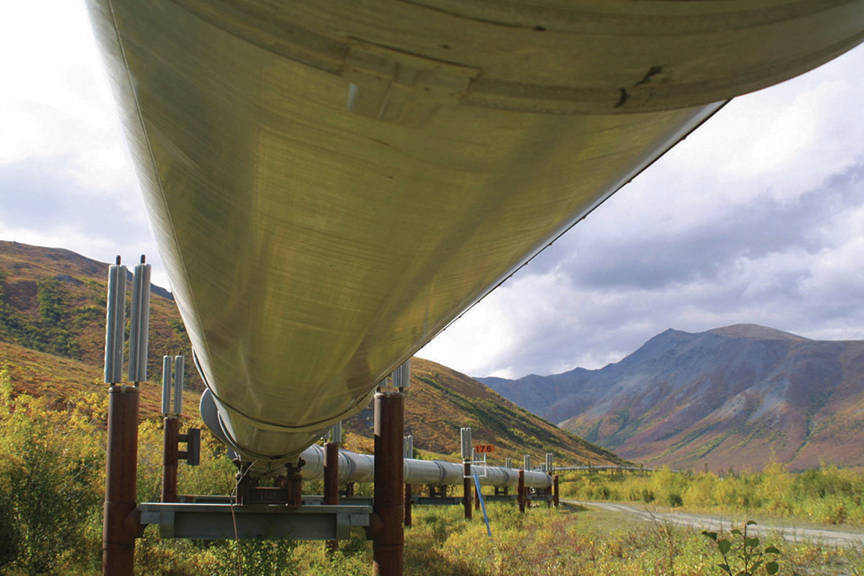A political campaign to remove oil tax credits and raise taxes on oil production kicks off in Juneau on Friday.
Vote Yes for Alaska’s Fair Share, officially formed on Aug. 16, is trying to get an initiative on the 2020 ballot. In order to do that, they need 28,501 signatures.
They’re kicking off their campaign in Juneau on Friday, hosting an event at the Hanger Ballroom. Representatives from the campaign will be there to answer questions and to give a presentation on the details of their initiative, the Fair Share Act.
The group wants to get the Act before voters on the general election on Nov. 3, 2020, and they think they can do it.
“I think we’ve got a real good shot at it,” said Robin Brena, Campaign Chair for Vote Yes for Alaska’s Fair Share and an oil and gas attorney. “There’s been a complete failure of political leadership to get our fair share.”
Alaska loses over a billion dollars a year in potential tax collection, Brena told the Empire in an interview Tuesday. Alexei Painter, a fiscal analyst for the Legislative Finance Division, said that in theory, were the per barrel oil tax credit removed, the tax revenue would be roughly $1.2 billion. Painter cautioned however, that number was dependent on production and investment remaining at their current levels.
But the Fair Share group sees that number as a remedy to Alaska’s fiscal woes.
In 2013, the Alaska Legislature passed Senate Bill 21, which reduced taxes on oil companies. Supporters said it would drive up investment and create new jobs while detractors called it a give away. But following the bill’s passage, “production is the lowest it’s been, hasn’t resulted in investment, hasn’t resulted in jobs,” Brena said.
But Kara Moriarty, President and CEO of the Alaska Oil and Gas Association, says that’s not the whole story.
“After 2015 the price of oil crashed,” she said in an interview with the Empire. “There were less jobs in the industry because oil prices collapsed. Alaska has still been able to attract major investments to Alaska, investments that were not being made before SB 21.”
The AOGA says that SB 21 has resulted in more oil production and investment in Alaska. Reports from AOGA claim that a conservative estimate of $5 billion in new investments came into Alaska following SB 21.
Provisions in the Fair Share Act would only apply to “legacy” oil fields, fields which produce 40,000 barrels a day and have produced 400 million during their lifetime. Currently, Alaska has only three fields which fit that description, Prudhoe Bay, Kuparuk and Alpine. Brena was emphatic the taxes would not apply to smaller and developing oil fields.
In addition to increasing taxes, the act would prevent what Brena called “ring fencing,” or the practice of applying deductible expenses from one oil field to another.
“It would only allow deductions for costs that are related to those fields,” Brena said.
The idea of removing oil tax credits and increasing taxes on large producers is not a new one, but Brena and the campaign think that in the state’s current fiscal environment they can convince more than enough people.
“If you want a modern Alaska, you’ll support it,” Brena said. “Our capital budgets have always been based on us getting a fair share.”
The last thing the Act would do is make the profits and costs for those large oil fields a matter of public record.
“I’ve asked on the record, ‘how much profit?’ and they say ‘we can’t tell you that,’” Senator Bill Wielechowski, D-Anchorage, said. Wielechowski is currently the only sitting legislator that supports the Act.
In a phone interview with the Empire Tuesday, he said Alaska has a much lower tax rate than other oil producing states like Texas and North Dakota.
“We’ve tax at a rate of 16%. Historically we’ve collected 25 or 26 percent,” Wielechowski said. “Texas and North Dakota are literally double the state of Alaska. If you were to take Texas’ oil tax structure, we’d be getting another billion-and-a-half.”
The campaign has already experienced significant push-back from the industry. Bloomberg reported that ConocoPhillips, which owns the Alpine field, has vowed to fight the campaign.
Moriarty said the industry would definitely feel the hurt if the Act were to pass.
“I’m not aware of any industry in Alaska that could support a 250 percent tax increase without having a negative impact on the economy,” she said.
Moriarty said the industry was on the cusp of some really exciting breakthroughs and that raising taxes would adversely affect investment.
“If we were the most profitable place in the world to do business, you would see more companies operating in Alaska,” she said. However, she said her organization looked forward to having a conversation with Alaskans about this.
Know and Go
Where: The Hanger Ballroom
When: Friday, Nov. 1, 5-7:30 p.m.
Who: Vote Yes for Alaska’s Fair Share: Robin Brena (Campaign Chair/ Alaska Oil & Gas Attorney), Nate Graham (Communications Director), former Rep. Justin Parish, Ken Alper (Former Tax Division Director, Alaska Department of Revenue)
• Contact reporter Peter Segall at 523-2228 or psegall@juneauempire.com.

